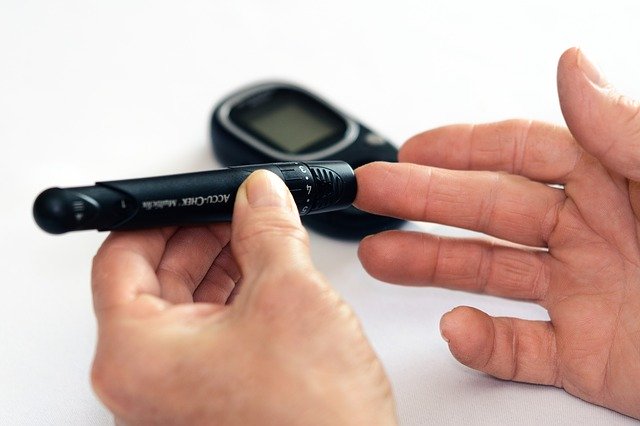 November is National Diabetes Awareness Month. While it’s true that the primary symptom of diabetes is an imbalance of insulin resulting in blood sugar levels that are too high or too low, it has effects on your entire body from your head to your toes – including your mouth and teeth.
November is National Diabetes Awareness Month. While it’s true that the primary symptom of diabetes is an imbalance of insulin resulting in blood sugar levels that are too high or too low, it has effects on your entire body from your head to your toes – including your mouth and teeth.
In the United States, over 29 million people have already been diagnosed with diabetes – more than 9% of the population. Every year 1.7 million new cases of diabetes are diagnosed, and as many as 8.1 million people have diabetes and don’t know it.
Diabetes 101
There are three types of diabetes – type I, type II, and gestational. People with type I diabetes are usually diagnosed during childhood or adolescence, although it can occur later in life too. With type I, the pancreas does not create insulin because the immune system attacks the cells that do. For these individuals, insulin injections are required to live. Without them, the body cannot convert sugar into cellular energy, and blood sugar levels rise too high.
Type II diabetes, also called “adult-onset diabetes” or “insulin-resistant diabetes,” is generally diagnosed later in life. It can develop due to several factors, including genetics, being overweight, having excess fat around the waist, and poor communication between the cells responsible for making insulin or glucose. Type II is the most common form of diabetes, affecting 27 million Americans and is usually treated with medication, diet, and exercise.
While those with type II diabetes do create their own insulin, their bodies do not use it efficiently, and sugar builds in the blood. Over time this becomes increasingly problematic as the body becomes more resistant to the increasing amount of insulin it’s creating. Because of the overload of insulin in the body, it can also cause dangerous drops in blood sugar if the person doesn’t eat regularly.
Gestational diabetes develops in some women while they are pregnant. In most cases, it goes away after the baby is born. To manage it and prevent harm to the unborn baby, dietary restrictions are put in place that lower the consumption of sugar and simple carbohydrates. If you’ve had gestational diabetes, you are also at a higher risk of developing type II diabetes as well.
Diabetes’ Affect on Your Mouth
So how does diabetes affect your mouth? One of the most common effects diabetes has on oral health is periodontal disease, a chronic inflammatory disease of the gums. Affecting as many as 22% of those diagnosed with diabetes, it can destroy your gums and the tissues responsible for supporting your teeth and bones. Unfortunately, periodontal disease can also exacerbate diabetes because infections cause blood sugar to rise. If left untreated, diabetes and periodontal disease can become locked in a vicious cycle – both making the other worse.
In addition to periodontal disease, diabetes can have several other adverse effects on your oral health, including:
- Dry mouth caused by a decrease in the production of saliva
- Increased risk of cavities due to dry mouth because saliva helps to protect your teeth
- Gingivitis, a precursor to periodontal disease, which occurs when the gums become inflamed and may bleed
- Difficulty tasting food
- Slower than normal wound-healing
- Increased risk of oral infections
- Earlier than usual eruption of teeth in children with diabetes
Protecting Your Mouth
One of the best things you can do to improve or maintain your oral health is to brush and floss regularly. While this is true for anyone, it is especially important for people with diabetes due to the increased risks mentioned above. Visiting your dentist regularly for checkups and deep cleanings can also lower your risk of developing periodontal disease. If you suffer from dry mouth, be sure to ask your dentist for recommendations on how to treat it. Several products on the market can help with this uncomfortable symptom.
Contact Us Today
If you have diabetes and would like help maintaining your oral health, give BC Perio Dental Health and Implant Centre a call or stop by one of our offices in Vancouver or Coquitlam to set up an appointment. Healthy mouths are our specialty, and we’d love to help you with yours!

